Venture Capital Tech Stack — 2020
My favorite SaaS products for VCs
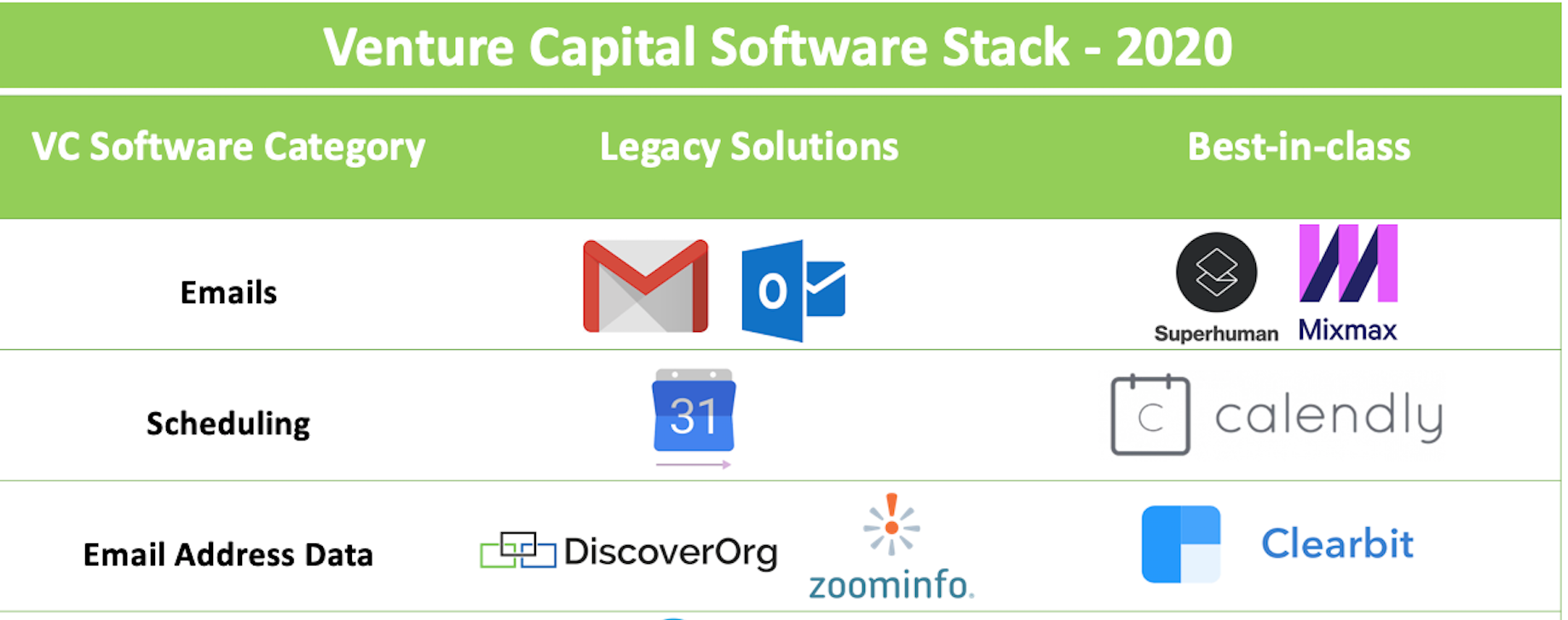
I worked in venture capital for the last 4 years at firms like Insight Partners ($20b AUM, 300+ investments in Qualtrics, Alteryx, Smartsheet, etc.) and SignalFire ($800m AUM; investments in Grammarly, Roman, One Signal, etc).
Throughout the years, I’ve evaluated countless tools for VCs to figure out what else on the market I could use to be better at my day-to-day job as an investor.
Today I wanted to share what I view as the best-in-class tools for venture capitalists in 2020!

Email Clients
- Legacy: Gmail and Outlook
- Best-in-class: Mixmax, Superhuman
- Why: I don’t have any major issues with Gmail and Outlook as email clients. However, Superhuman ($30/month) makes replying to emails a delight. I’ve found myself getting to inbox zero more quickly, and features like “instant intros” + “snippets” shave off a few seconds here and there which can really add up. I’m also a huge personal fan of Mixmax which is an email editor built on top of Gmail. What’s most helpful are the email analytics (email opens, reply) and the email sequences when you need to remember to follow up with a founder you sent an email to.


Company contact data
- Legacy: DiscoverOrg, ZoomInfo
- Best-in-class: Linkedin, Clearbit
- Why: After you identify an interesting company that you want to contact, finding the founder’s email address is an important yet sometimes tricky job. Luckily, tools like Clearbit Connect can make it really easy to get email address data in less than 5 seconds. I also included LinkedIn InMail which I think is a great channel for getting in front of founders when email gets noisy.
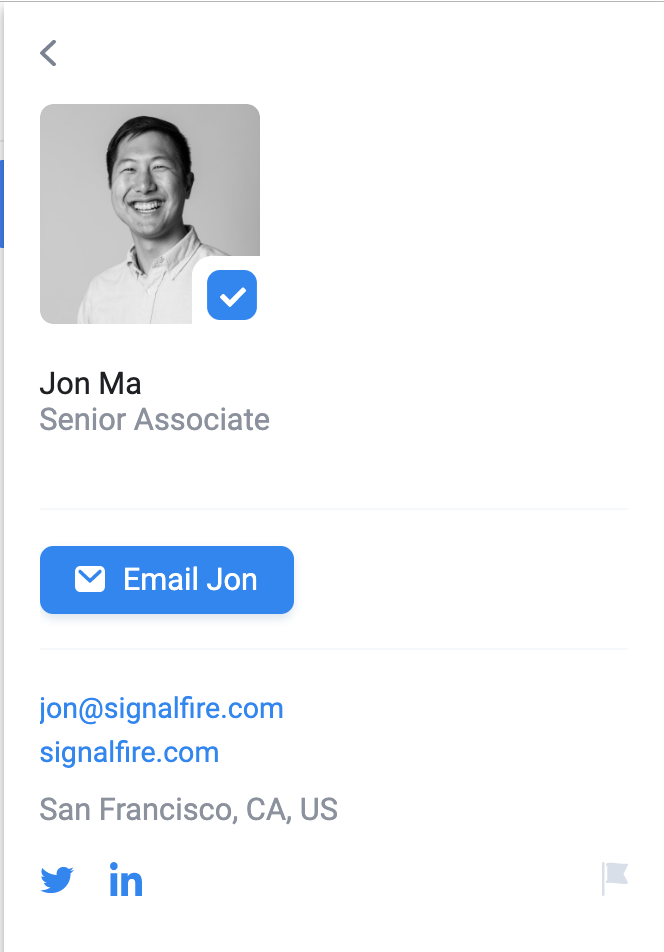
Scheduling
- Legacy: Emailing back and forth
- Best-in-class: Calendly
- Why: Once you get in touch with a founder, there’s usually a ping pong that takes place to find a time that works for both sides to chat. If you’re like me and don’t have someone on staff who helps you schedule, I’ve found using Calendly to be the perfect way for founders or VCs to automatically suggest multiple available time slots, versus having to manually comb for times in our calendars.
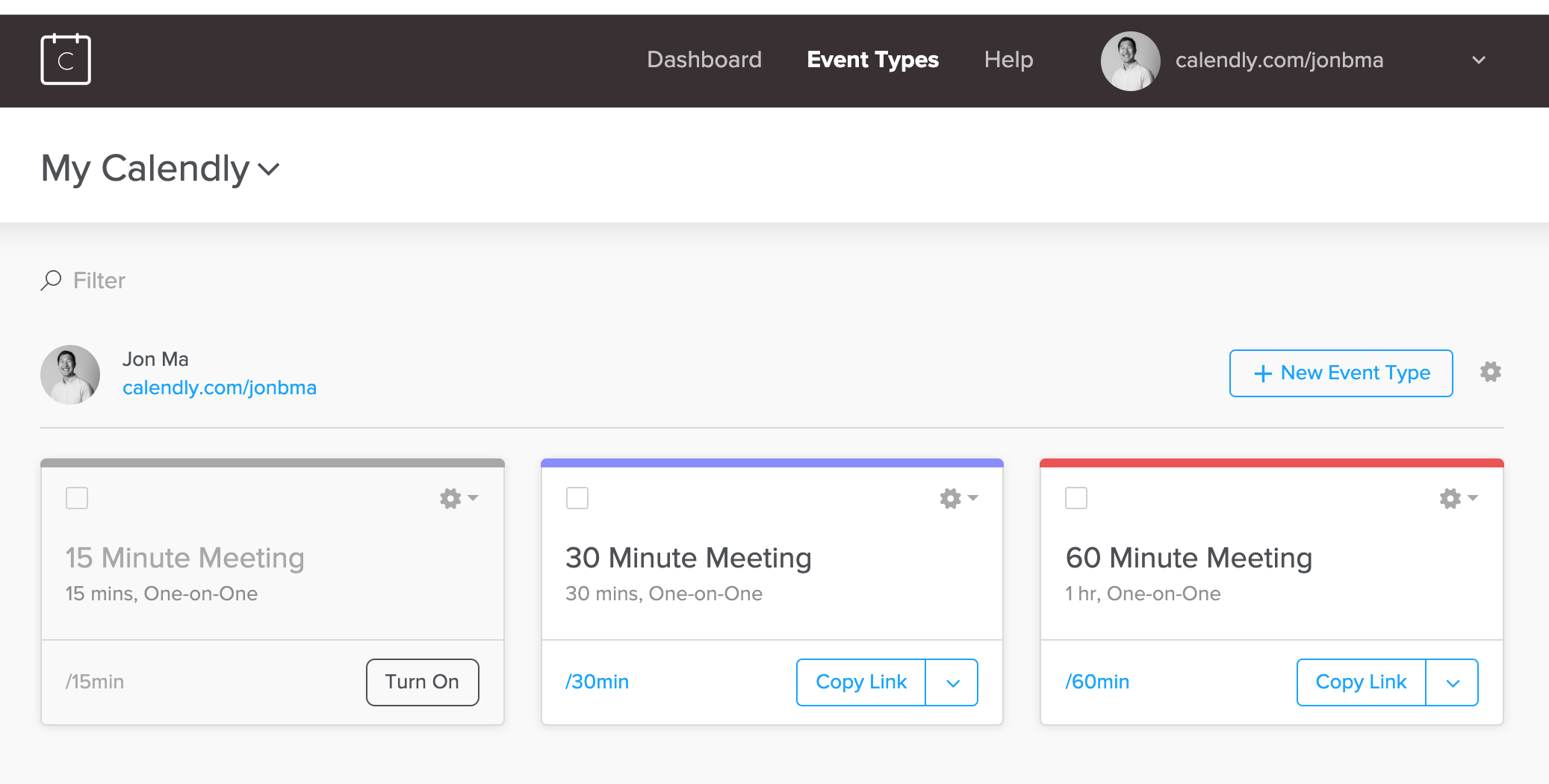
Deal Management/CRM
- Legacy: Salesforce CRM
- Best-in-class: Affinity
- Why:
Managing your deal flow and reporting to your team what’s in the pipeline is crucial in ensuring nothing falls through the cracks. I’ve used Salesforce and I personally hated using the product. Salesforce was not really built for managing deals but, in my opinion, rather for sales teams. I remember viscerally dreading the need to manually type in the company name, URL, address, state, zip code, funding information, and description of the company into Salesforce every time I created an “Account”. Uploading documents was a pain, and worse, it was impossible to figure out if any of my teammates had already reached out to the founder unless the person manually logged the email.
When I joined SignalFire, we were originally using Salesforce IQ. Shortly after, Salesforce announced they were going to sunset SFIQ. At that time, my friend David Cheng connected me with Affinity, a relationship intelligence platform. I never thought I’d say this, but once we got onto the product, I started to love adding and managing my deals. Let me explain.
When you add a company to Affinity, the product will immediately auto-populate all the fields that matter like total funding, previous investors, location, etc. Most importantly, Affinity will pull all the previous emails sent to the company’s domain. The last point can’t be overstated because it helps prevent deal members from reaching out to the same founder. I couldn’t recommend Affinity more.

Portfolio Management
- Legacy: Excel
- Best-in-class: Airtable, Carta
- Why: When putting together slides for LP day or LP letters, I hated having to scour emails or Dropbox/Box/Google Drive for individual cap tables to remember how many shares of which company we owned and when we invested. Thanks to Carta and Airtable, we are now able to access all our portfolio company data in a centralized platform. Since so many startups are already using Carta’s cap table, it’s usually pretty easy to set up the product and get a quick rundown on company ownership, number of shares, etc. Airtable is a flexible database and alternative to spreadsheets for storing fields that Carta may not track like specific performance KPIs, job openings, etc.
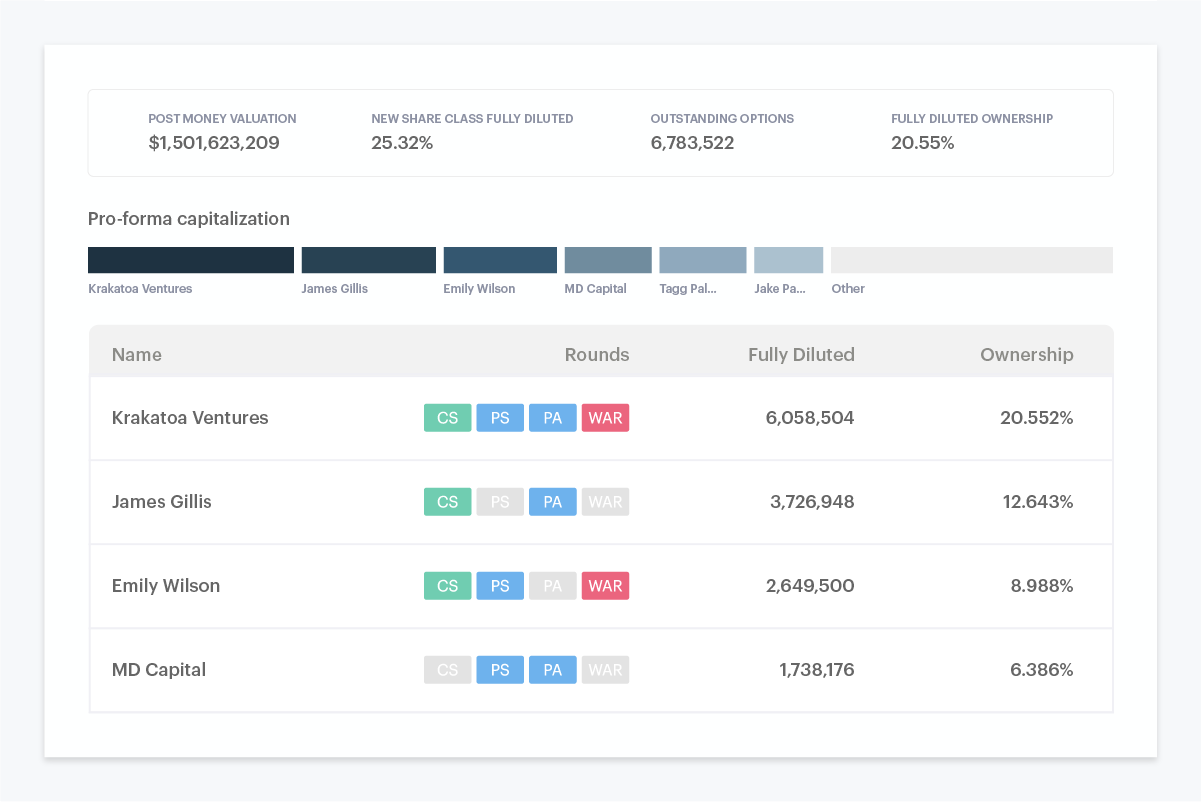
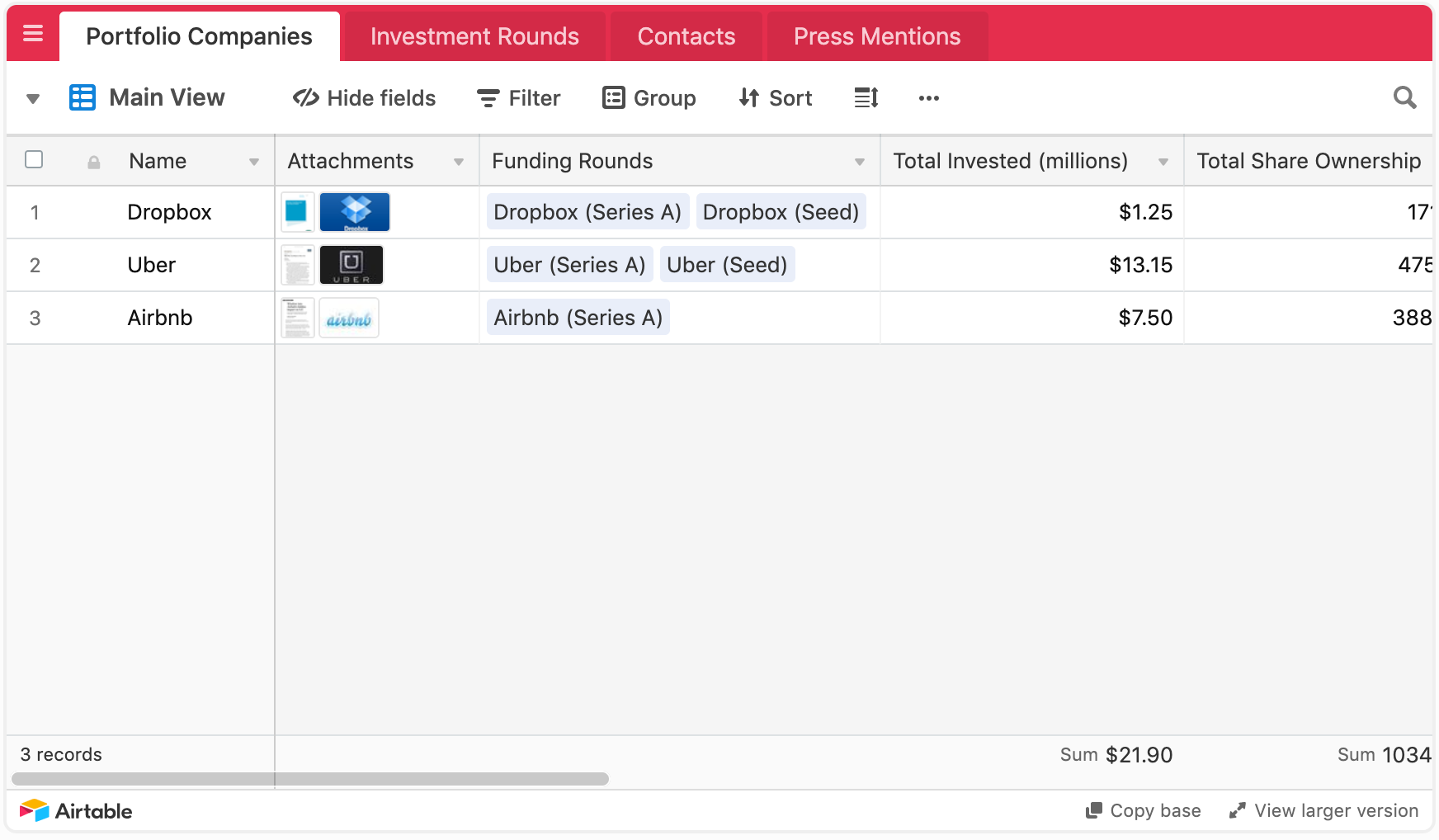
Diligence Notes
- Legacy: Evernote, Google Doc
- Best-in-class: Notion.so
- Why: I was a heavy Evernote and Google Doc user and have no problems with the two products other than how difficult it is to search and categorize notes for the different companies I was doing due diligence on. Notion makes it extremely easy to create a template for taking notes and to share the notes with your team. Notion reminds me of Evernote + Dropbox Paper + Monday/Asana/Trello all combined into a single product. It’s been very easy to take notes and share them with team members without having to copy + paste them into a Google doc or send via email.

Comparable Analysis & Software Benchmarks
- Legacy: CapIQ, Yahoo Finance
- Best-in-class: Public Comps
- Why:
Your partner asks you to pull financial comps to figure out how to value an investment, or you’re tasked with figuring out what are best-in-class benchmarks for public software companies (e.g Payback Period, Net Dollar Retention, ARR Growth). Sound familiar?
When I joined SignalFire, we didn’t have CapIQ so every time my partner wanted me to run comps (e.g EV/Calendar Year Revenue, EV/NTM ARR) for a company, I’d go onto Yahoo Finance, copy enterprise value, most recent quarter revenue, quarter revenue from a year ago, gross profit, and EBITDA and then manually calculating the respective valuation multiples that we cared about.
Pulling comps is tedious, mind-numbing work that can take up a lot of time. I hated it. That’s why I started Public Comps. My hope was that others don’t have to feel the pain of having to manually go through the SEC filings.
Not only does Public Comps provide a one stop shop for savvy SaaS investors and operators, Public Comps is $99/month, whereas CapIQ can start at $39,000/year (source). That’s a 10x+ difference in price. We believe we should be able to automate your comps analysis or pull the best-in-class SaaS benchmarks for software companies in <1 minute, or we have failed you.
Give our comps product a try now for free! https://publiccomps.com/tickers

Private Company Data
- Other Competitors: Datafox, Mattermark/FullContact, Crunchbase
- Best-in-class: Pitchbook
- Why: I’ve evaluated Pitchbook, Datafox, Mattermark, Crunchbase and have consistently found Pitchbook to have the most accurate data on private companies compared to the other vendors. What helps is that Pitchbook doesn’t just rely on funding announcement data — they also have a team that reaches out to companies and investors to augment their existing database of private companies. When deciding what companies to pursue, Pitchbook provides a quick and easy way to find companies backed by funds that you respect or track.

Disclosures: I’m a personal investor in Carta. Howard and I are behind Public Comps so we are obviously heavily biased. 😀
